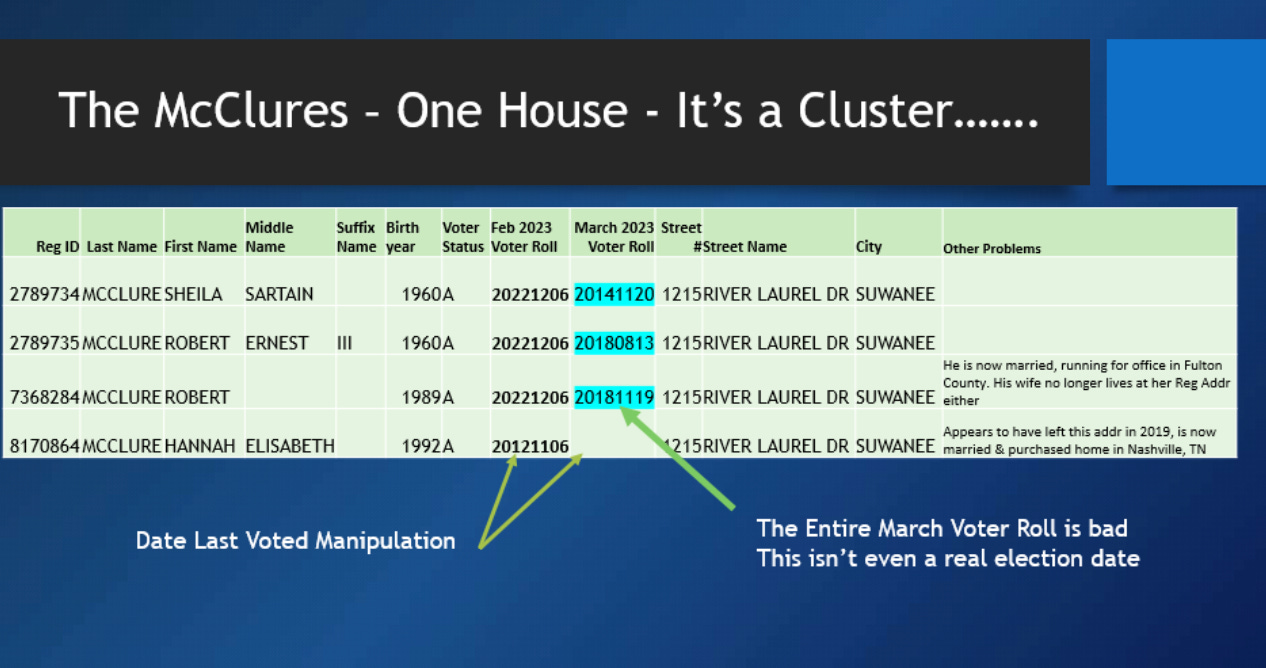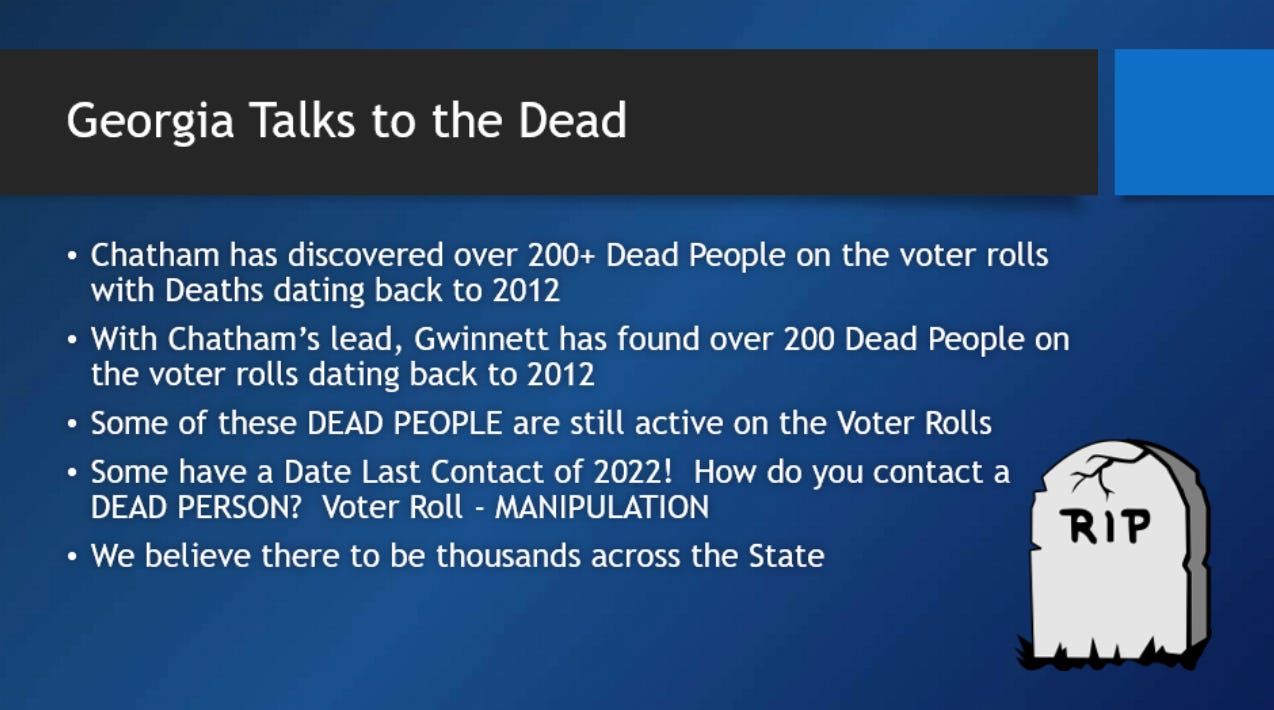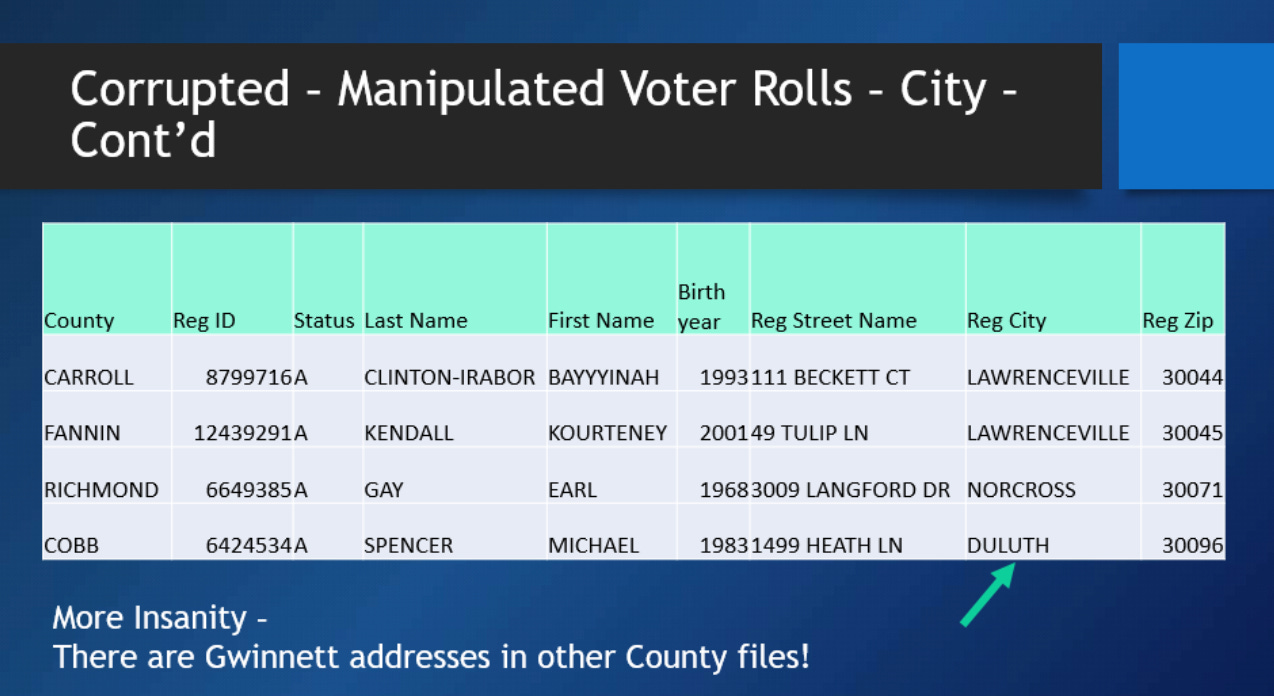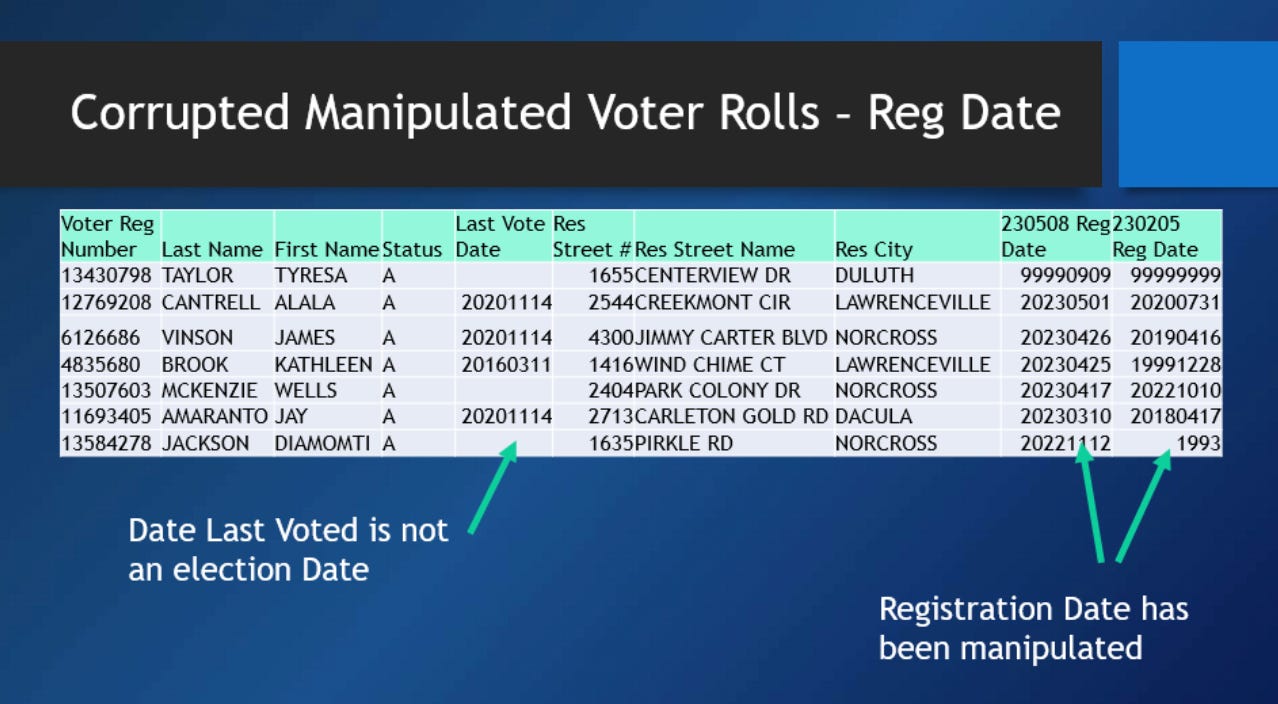I’ve had lots to say about Georgia’s corrupt election system, which is certainly only the second-best Georgian election system in the world, lagging way behind the one found in the former Soviet state of Georgia, the birthplace of Joseph Stalin. The past month has seen even more information ooze out of the Peach State, with the Halderman report being unsealed after being frozen in ice for more than two years, further revealing Brad Raffensperger as having knowingly presided over an election system vulnerable to the worst types of cheating imaginable. In other news, Spalding County, Georgia, has begun a process that may put itself and other counties in line to conduct elections without electronic elections equipment.
Last summer, I spoke with Kim Brooks, a researcher from DeKalb County, Georgia, who informed me that she was digging up a wealth of information on many counties, not just those within the Atlanta metroplex. Kim is now coming to the surface with her information, and briefed me on the high points of her research before I spoke at the Georgia GOP Convention last month.
Here are some “highlights,” if that word can be used at all, of the research compiled regarding the state of elections in Georgia left untouched by any of Halderman’s findings:
2020 Election Cycle
Fulton County has unsigned tabulator tapes for over 300,000 votes.
74 Georgia Counties cannot produce roughly 1.7 million ballot images.
State law does not allow for absentee ballot requests made more than 180 days before an election (this date would be May 6, 2020); however, 158 of 159 counties in Georgia accepted mail ballot requests before the allowable date, for an approximate total of 235,000 illegally accepted ballot requests once elderly and UOCAVA ballot requests are eliminated from the count.
Ballot requests came from everywhere – Bronx, San Diego, New Orleans, Virginia Beach, and New York – apparently previously unknown cities in Georgia once thought to be major cities of other states (see graphic below).
Brad Raffensperger told The Today Show on November 4, 2020, Georgia had 4.7 million voters for the 2020 election, but wound up certifying nearly an exact 5.0 million votes. Captain Keshel estimates Trump’s margin of victory in Georgia at 347,674 votes.
2022 Election Cycle
One primary election in DeKalb County was audited and the original third place candidate won the race.
Brooks’ team has found Georgia officials toggling voters from inactive to active, and back to inactive status in order to cast extra votes, and altering “date last voted” to cover up the malfeasance.
Voter Rolls
Fulton County has an estimated 20,000 duplicate registrations, Gwinnett 2,600, and Chatham 1,000, likely aided by dysfunction related to Motor Voter rules.
Georgia law does not allow registrations at business addresses (see below).
Georgia maintains countless thousands of voter registrations at fictitious addresses.
Georgia’s electronic voter database registers voters beyond the dates they are said to have last voted, turns inactive voters active and back to inactive, and regularly makes errors like the ones pictured below:
It is true, people are dying to vote in Georgia’s elections (see below):
Georgia voter rolls often contain addresses that exist in other counties (see below):
Is anything on the rolls even real?
Conclusion
I have always maintained that “Clean Out the Voter Rolls” is the first and most important of the Ten Points to True Election Integrity; Brooks, on the other hand, shows that a complete decontamination is needed, with “voters” constantly being shifted around, removed and reinstated, and otherwise manipulated thanks to systems like ERIC (Electronic Registration Information Center) and other centralized voter roll maintenance systems. The filthy, easily manipulated rolls are the “credit line” from which fraudulent votes originate, and they feed both electronic and manual election corruption.
This is only a brief glimpse into local election research in a critical state that I cannot see being lost by an ultimately victorious Trump 2024 campaign. Georgia has no business running another election until they deal with these issues listed herein, and re-register their entire voter roll, throw out ERIC, and get back to previously held standards for handling absentee ballot requests.
Georgia, though taking on water for its corrupt election administration, looms large as a must-win state in 2024 for both campaigns.
Author’s Note: This is critical, must-know information that should be shared far and wide. While this piece is Georgia-specific, what is being found there is certainly being done in other states, especially those who offer little transparency into their internal processes. I aim for maximum transparency and produce multiple free articles per week, but it would be awfully peachy if you would sign up to be a paid member of this journal so I can keep up the battle, full speed ahead. Thank you!











I haven't been in here in months and came in to cancel, but seeing the free articles makes me pleased and I've decided to not cancel. Keep posting free articles and I’ll keep paying my share of it. :) Thanks Captain K!
"The filthy, easily manipulated rolls are the “credit line” from which fraudulent votes originate, and they feed both electronic and manual election corruption."--thanks for this--I appreciate you helping me understand the connection between the voter roll and the election outcomes. Each entry in the roll is like a dollar that can be spent on an election. The only thing needed is time to reconcile the actual results with the desired results to ascertain the delta; then to spend the delta from the dirty roll down only enough to not make it glaringly obvious to the public. The result being a razor-thin MOV days after the math is done. Wake up America, your elections are like a bad spending spree and all the cards are maxed out.